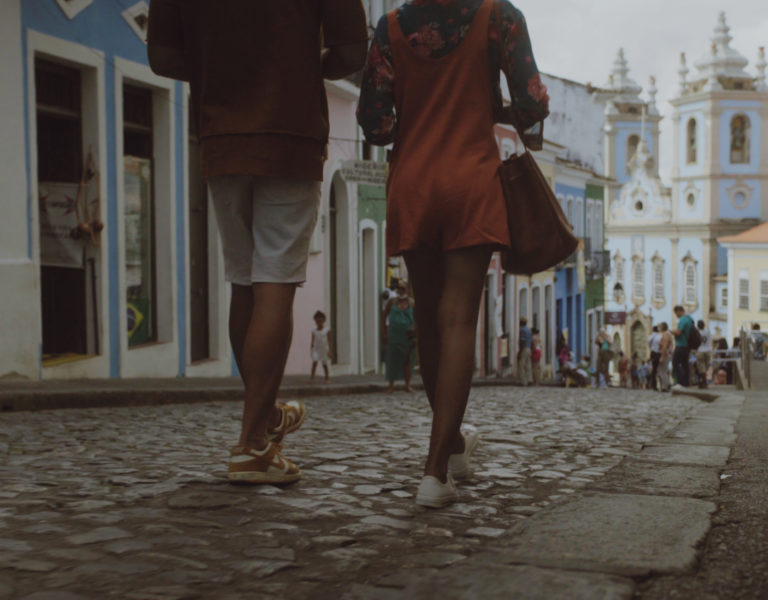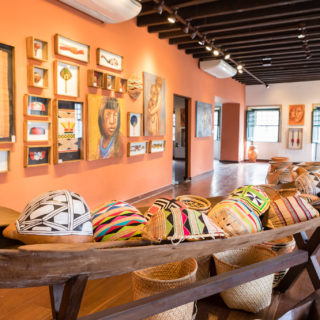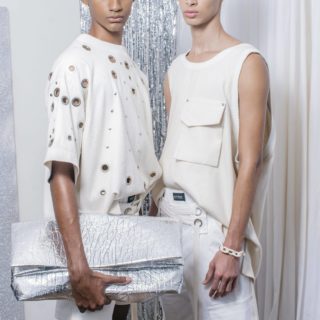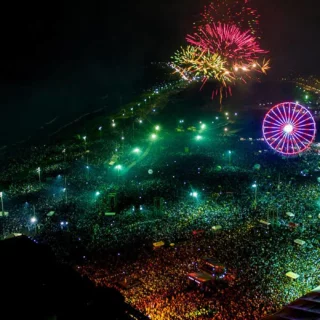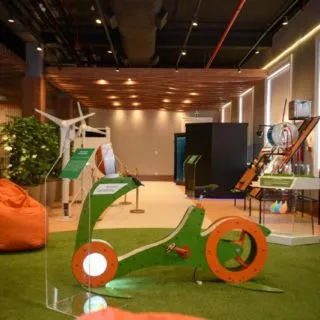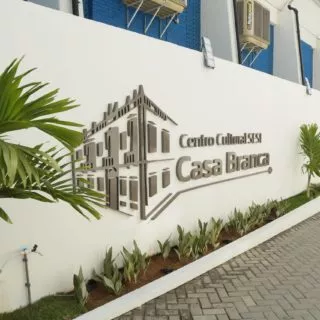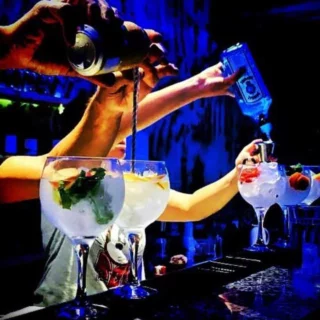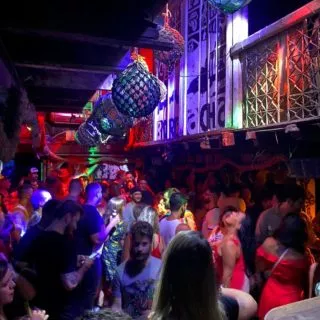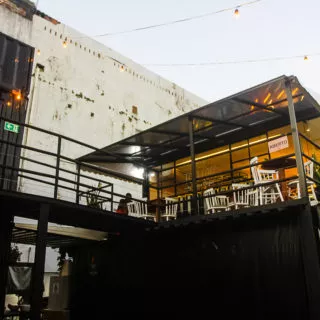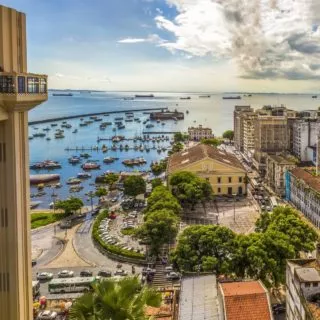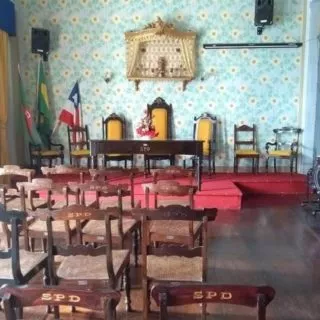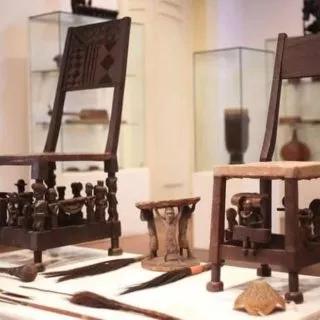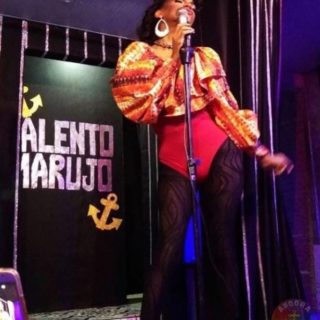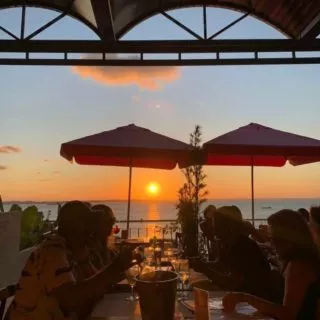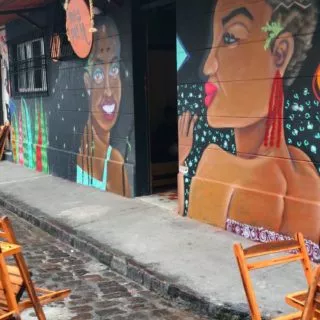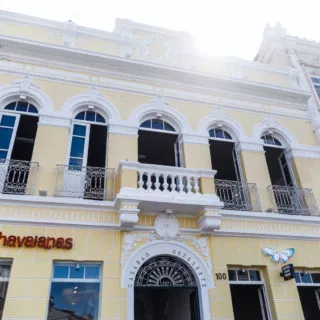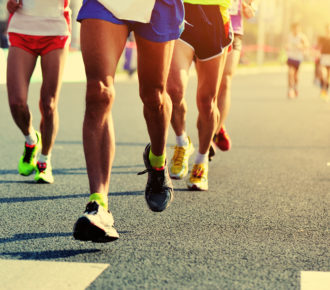
A list of 10 classic places for you to live and revive unforgettable experiences
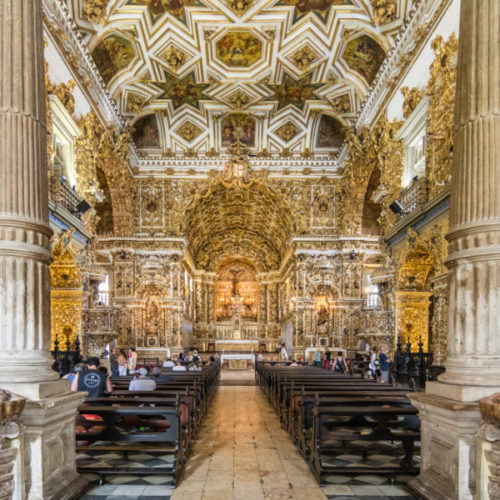
Sunny and musical city, rich in gastronomy, natural beauty, pulsating cultural life and party people. The capital of Bahia is a travel destination for people from Brazil and the world all year round, eager to get to know and feel the energy that emanates from here. Even for those who already know it, there is a constant desire to return to Salvador, revive experiences and catch up on old times.
Visit Salvador da Bahia has gathered here the most traditional tours in the city. This time, we’re going back to the Historic Center to see places from different points of view and learn some beautiful stories. Here we go!
This famous Brazilian baroque colonial architectural ensemble, Pelourinho, has so many surprises that it would take days and days to see it all.
1. Music land
Salvador is the city of music, land of great artists known worldwide, and the birth of great artistic movements. Pelourinho breathes music. There, it is the home of one of the largest Afro groups in the city, Olodum, which is constantly performing along its hilly streets, or in front of Fundação Casa de Jorge Amado, in Largo do Pelourinho.
Banda Feminina Didá is also headquartered in Pelô, where it holds workshops and presentations. The stores owned by groups such as Ilê Aiyê and Malê Debalê are located on Rua da Laranjeiras, where you can buy t-shirts and other items, as well as learn a little about their stories. The Olodum group also has products for sale at Casa do Olodum, on Rua Maciel de Baixo.
2. We are Carnaval! We are folia!
To experience again two things you have been missing a lot, the street and the carnival, put on your wish list a visit to Casa do Carnaval, a permanent museum that tells the story of Bahian revelry. On four floors, it is possible to make a visual and sensorial journey, with several thematic cutouts of the party, recalling social transformations and the formation of the Bahian identity. Learn more at this link.
Praça Ramos de Queirós, no number – Pelourinho, Salvador – BA, 40026-055.
Opening hours: Tuesday to Sunday – 10 am to 6 pm.
3. Cravinho Bar
There is no celebration in Pelourinho in which Cravinho is not present. A hallmark of open-air parties, cloves and cinnamon bring a very full-bodied taste and aroma that, mixed with alcohol, form a curious infusion. Learn more at this link.
It is located in Terreiro de Jesus, Pelourinho, 3, next to the Cathedral Basilica, in the Historic Center of Salvador.
Phone #: (71) 3322-6759 / 99314.6022
Culture and faith
4. Church of Our Lady of the Rosary of the Black People
This is a peculiar Church, which mixes Catholic Religion with Candomblé drums. The book “Irmandade do Rosário dos Pretos – Quatro séculos de devoção” (Brotherhood of the Rosary of the Black People – Four centuries of devotion) explains the union of Catholic rites and practices with an African sacred experience. The organization of Africans around the cult and adoration of Our Lady of the Rosary, since its elevation to the category of Third Order, allowed the incorporation of devotion to other saints of the Afro-Catholic tradition. Among them: St. Anthony of Carthage, Ephigenia, St. Elesbaan, St. Benedict, St. Barbara, St. Josephine Bakhita (canonized by Pope John Paul II in 2000) and even the slave Anastasia, still unrecognized in the Catholic hierarchy, but of strong value for Afro-Brazilian religiosity. Learn more at this link.
Largo do Pelourinho, Historic Center.
Contact: (71) 3421-5781.
5. Church of the Third Order of St. Francis
People say that this was Jorge Amado’s favorite church. And it is not by chance. Built between the 17th and 18th centuries, the Church of the Third Order of St. Francis has a washed sandstone stone facade decorated in high reliefs, and is the only example in Brazil that refers to Spanish baroque. The project is by Gabriel Ribeiro, considered one of the introducers of baroque in Brazil. The site also houses the only set of Portuguese tiles that represents the city of Lisbon, in Portugal, before the 1755 earthquake. Learn more at this link.
Address: Largo do Cruzeiro de São Francisco, no number – Pelourinho
Phone #: 71 3321-6968 or (71) 9999-5576
Visitation: Church and Museum of Sacred Art, from Monday to Saturday, from 9 am to 12 pm and 1 pm to 5 pm. Sunday from 10 am to 3 pm / Entry: R$ 5.00
6. Church and Convent of San Francisco
Built between the 17th and 18th centuries, the Church and Convent of São Francisco are classified as one of the Seven Wonders of Portuguese Origin in the World and listed by IPHAN.
This Church is also known as the Golden Church, with gilded walls, columns, ceiling and altars, one of the most famous Baroque monuments in the world. In addition to the gold embroidering the entire temple, there are still admirable sculptures in jacaranda. Learn more at this link.
Address: Largo do Cruzeiro de São Francisco, no number – Pelourinho
Phone #: 71 3322-6430
Visitation: Monday, Wednesday, Thursday, Friday and Saturday, from 9 am to 5:30 pm. Tuesday, from 9am to 5pm. Sunday, from 10 am to 3 pm / Entry: R$5.00.
These and other churches are in the Walks of Faith webseries. The project consists of a series of three episodes featuring immersive itineraries that show churches, shrines, museums and Catholic temples in Salvador. Learn more at this link.
7. A wish of taking that classic photo
There is no tour around Pelourinho without the classic photo in front of the large blue house, in Largo do Pelourinho, a place that has always been present in the life and work of writer Jorge Amado. This is the Fundação Casa de Jorge Amado, a non-profit organization, which aims to preserve, research and disseminate the bibliographic and artistic collections of Jorge Amado and the art and literature of Bahia. The house promotes permanent debates about Bahian culture, especially the struggle to overcome racial and socioeconomic discrimination. Learn more at this link.
Opening hours: it has been closed during the pandemic. Reopening is scheduled for November 2021.
Please call before visiting: (71) 3321-0070 / (71) 3321-0122
8. Palm oil in the blood
In the middle of the tour, you realize that you’re hungry. Lucky you that Pelourinho has great options everywhere. If palm oil is what you’re looking for, Pelourinho has famous moquecas.
The Odoyá restaurant, located in Largo de São Francisco, is a mandatory stop for anyone visiting the Historic Center. Another option in Pelourinho is the Sorriso da Dadá restaurant, run by Dadá, one of the most famous cooks when it comes to Bahian food.
Service
Odoyá Restaurant
Instagram: @odoyarestaurante
Address: Largo do Cruzeiro de São Francisco, 1 – Pelourinho, Salvador – BA, 40020-280.
Phone #: (71) 3322-7892
Sorriso da Dadá Restaurant
Instagram: @sorriso_dada
Address: Rua Frei Vicente, 05 – Pelourinho, Salvador – BA, 40026-030
Phone #: (71) 3321-5819
Discover other bars and restaurants on this link.
9. Two must-see Museums
Among the most traditional museums in the Historic Center are Palácio da Sé and Casa do Benin and the Gastronomy Museum. Together they tell important points of our history.
The Archbishop’s Palace was founded in 1715 by the 5th Archbishop of São Salvador, Dom Sebastião Monteiro da Vide. It was built to be the residence of bishops and archbishops. Today, named Palácio da Sé Cultural Center, it is a center of reference in the history of the Catholic Church in Brazil, with the collection of the Archdiocese of Salvador, in addition to a space for temporary exhibitions and also for events and ceremonies. Learn more at this link.
Address: Praça da Sé, 203-47 – Historic Center
Phone #: 71 3838-9987
Visitation time: Monday to Saturday – 10 am to 5 pm.
In the heart of the Historic Center, Casa do Benin represents a piece of Africa, where the exchange of cultures from there to here and from here to there happens. The Cultural Space has an important Afro-Brazilian artistic and cultural collection and is maintained by the Gregório de Mattos Foundation to enhance Afro-Brazilian cultural relations.
The House has a collection of around 200 pieces from the Gulf of Benin, collected by French photographer Pierre Verger during his trips to Africa, to study the ebbs and flows between Africa and Bahia.
Baixa dos Sapateiros, 7 – Pelourinho, Salvador-BA, 40025-005
Opening hours: Tuesday to Saturday, 9am to 5pm.
Admission is free
Phone #: (71) 3202-7890
10. An ice cream at sunset
From the top of the Lacerda Elevator, there is an exuberant view of the All Saints Bay, perfect for a sunset. You can see São Marcelo Fort, the Nautical Tourist Terminal, Mercado Modelo and the brand new Cidade da Música da Bahia (Museum of Music). To end the day, try a coconut maltado or a cherry ice cream from the A Cubana ice cream parlor. This is the perfect end of a tour day after walking so much.
Learn more about Lacerda Elevator at this link.
Ticket: R$ 0.15 cents each trip in the elevator.
Opening hours: Monday to Friday from 7am to 10pm. Saturdays, Sundays and holidays from 7am to 7pm.
Location: from the Lower City – Praça Visconde de Cayru, Comércio. From the Upper City – Municipal Square (Praça Tomé de Souza, no number, Salvador Center -BA 40020-000), Historic Center, Salvador
Find out where to park in the Historic Center
Inside the Pelourinho or in its surroundings, see where to find parking lots safely. Learn more at this link.
Attention to the protocols:
You can already go out on the street, but the safety protocols against COVID-19 must be maintained.
The capital of Bahia is in the green phase of the “Plano Salvador” for the resumption of economic activities. Remember that when taking any tour, the use of a facemask and hand sanitizer are still necessary to avoid contamination by Covid-19. You can only remove the mask when eating or drinking. If you need to walk around a bar, restaurant, museum, etc., wear a mask.

